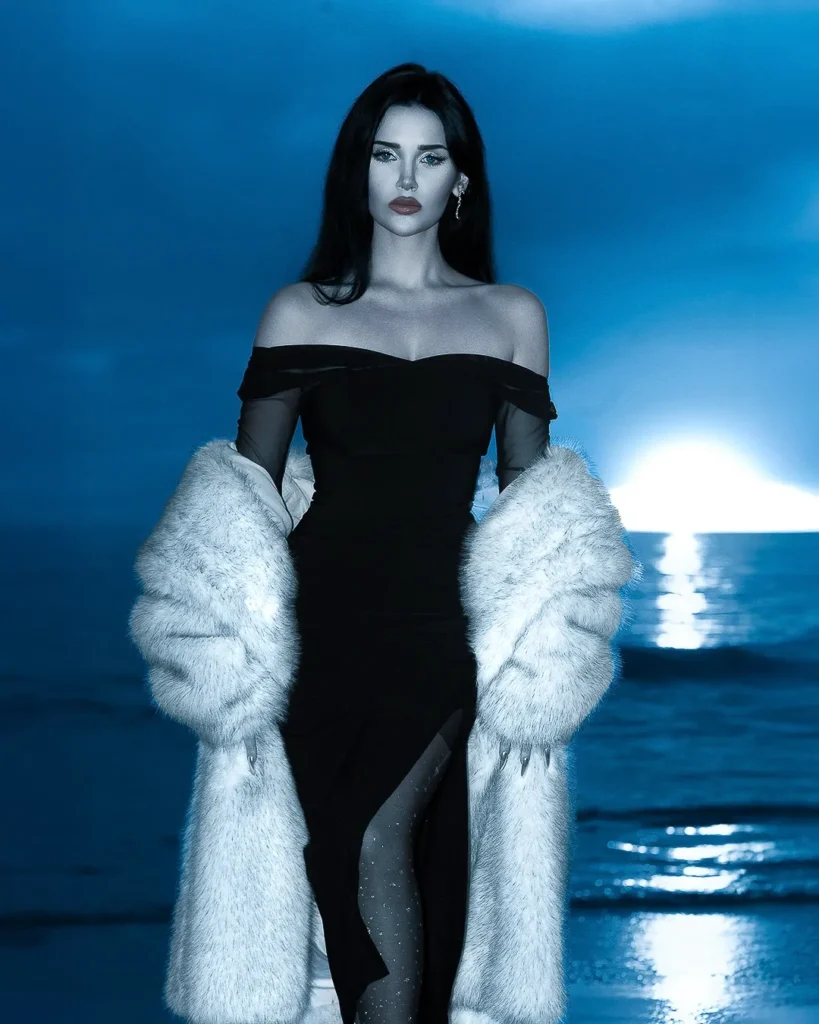In a dimly lit Los Angeles studio, Siren is explaining why she writes music in a language that isn’t her own. The 24-year-old artist, born to Russian-speaking parents, has chosen English as the voice of her songs—a decision that feels both deliberate and inevitable for someone who learned to sing in English at age five.
“I don’t write for people—I write for myself,” she says, a statement that could sound defensive if it weren’t delivered with such matter-of-fact clarity.
Since 2019, Siren has been quietly amassing an arsenal of unreleased material—roughly 70 songs that sprawl across genres like a restless insomniac. Her latest release, “Devil 2019,” which dropped in August, offers a glimpse into this vast catalog. The track runs just under three and a half minutes, but it contains multitudes: trip-hop beats colliding with orchestral swells, industrial metal grinding against delicate piano passages.
The collision makes sense when you understand her musical DNA. At twelve, she discovered Rammstein, the German industrial metal band that, she claims, shaped “about 60% of my musical taste.” Then came Lana Del Rey, who opened entirely different sonic territories. Add Massive Attack, Portishead, and improbably, Tchaikovsky’s “Swan Lake,” and you begin to see the blueprint for her sound.

Her earliest musical memory involves her Russian grandmother singing folk songs while rocking her on a swing in winter. “Everything felt blue, cold, wintry, dark, nostalgic,” she recalls. That sensation—melancholy as comfort rather than sadness—threads through everything she creates.
Without formal training, Siren taught herself to write, compose, and perform entirely by ear. She describes the process as intuitive, almost involuntary. “Every ache must be turned into art,” she explains, as if creativity were less a choice than a biological imperative.
Her upcoming album Blue Blood explores oceanic themes that mirror her own contradictions. She loves the ocean but admits to thalassophobia—the fear of deep water. “I reflect what I fear. I am what I fear,” she says, and suddenly the drowning quality of her music makes perfect sense.
The album features “Siren Heroine,” her first official single released in June, with an alternate version coming soon because she couldn’t choose between two different pitches. It’s this kind of indecision—or perhaps abundance—that has kept most of her work unreleased, scattered across SoundCloud for the devoted to discover.
What drives someone to create 70 songs before releasing a proper single? For Siren, music seems less about career strategy than compulsion. She talks about her songs reflecting both “anima and animus”—the feminine vulnerability in her vocals wrestling with masculine aggression in the instrumentals. It’s psychology textbook meets recording studio, Carl Jung meets industrial rock.

“Being in minor doesn’t mean negative—just like ‘alone’ doesn’t mean lonely,” she offers, summarizing an artistic philosophy built on embracing rather than resolving contradictions.
When asked how she’d describe her music to newcomers, she pauses. “Different. Melodic. Maybe even a little strange.”
Strange might be exactly what we need. In an industry that increasingly rewards the predictable and the playlist-friendly, Siren is hoarding 70 unreleased songs that refuse to behave. She’s building something in that LA studio—not a career in any conventional sense, but a body of work that sounds like Tchaikovsky and Rammstein had a fevered argument in a flooded cathedral.
Most artists would kill for one clear influence, one definable sound. Siren has chosen the harder path: making music for no one but herself, trusting that honesty will find its audience. With 70 songs waiting in the wings and an album that promises to drown us in beautiful contradictions, the question isn’t whether she’ll find her tribe. It’s whether we’re ready for what she’s been building in the dark.
Stream Siren’s music on Spotify, Apple Music, and SoundCloud, or follow her on Instagram and her website.




































